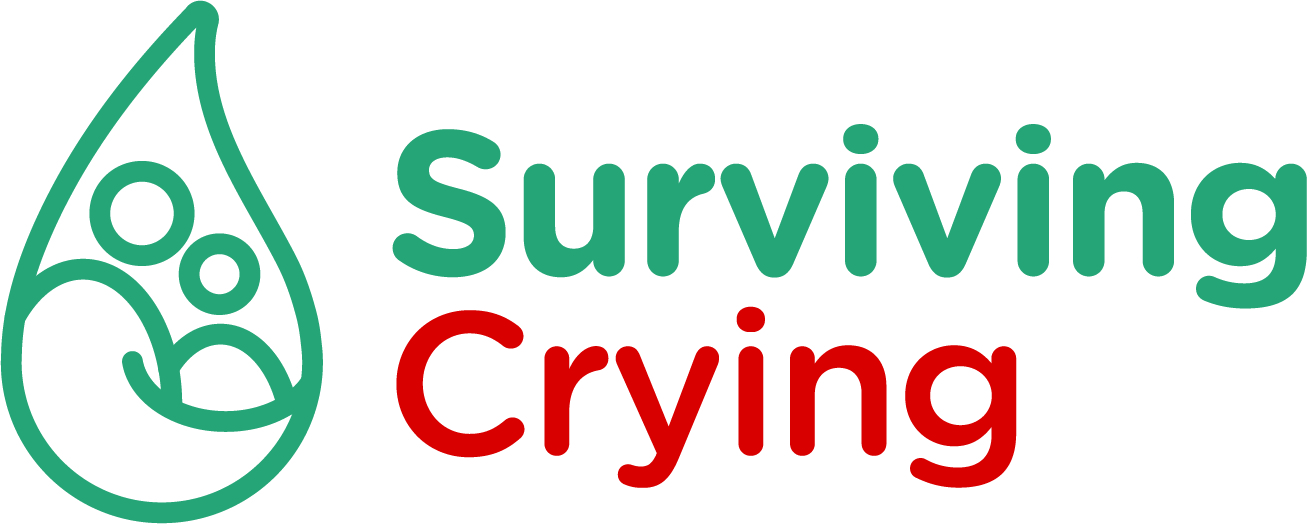Coping with babies excessive crying through Surviving Crying: a research led approach.
The study is trying to find out if the Surviving Crying package is both cost, and clinically, effective.

Looking forward to parenthood is part and parcel of pregnancy, I know that I had images of walks and coffee mornings with other Mums, sharing stories while we pushed our contented babies across the park. But life doesn’t always work out as you expect, and about 20% of babies cry in a way that parents struggle to cope with. Although for the majority this will ease by the time baby is 5 months old it can cause real problems. One parent told us
I think I felt quite frustrated…. I had expected that when you pick them up and try to comfort them, you expect that to work and when it didn’t you don’t really know what to do with yourself
This excessive crying is often put down to colic and other organic causes such as babies lacking ‘good’ bacteria in their gut, and baby picking up on parental stress and anxiety. But more recently research is suggesting that for the majority it is part of normal development. Although there is no clear picture, a great deal of research has shown that babies who cry a lot, and fit the colic picture, are in good health.
Excessive crying may be a problem that is focused around the first months of life, but it can have longer-term consequences. These include premature termination of breast-feeding, over feeding, presumption of physical causes such as lactose intolerance, parental distress, anxiety and depression, poor parent and child bonding, problems with long term child development and, in rare cases, infant abuse. All of these can also lead to a potential increase in the use of NHS and other services.
While there are no definitive answers as to the causes of this early excessive crying Professor Ian St James-Roberts, psychologist and expert in infant crying, decided to look again and began to focus on the parent. We have worked together for almost 10 years exploring ways in which we could support parents to cope with excessive crying. Our work is showing parents that there is light at the end of the crying tunnel, and we are here to help them identify their own resources, and how to use them to get to the end of that tunnel.
Over several research projects, with the help of parents and health visitors, we have developed an intervention to support parents. This consists of a website and booklet with evidence-based information, techniques and parent stories. For those who need more support, we have one to one sessions using cognitive behavioural therapy delivered by Surviving Crying trained health visitors. As one parent told us:
I'm just so grateful to you for starting (Surviving Crying) with the health visitors, for putting me on the study for Jan (Surviving Crying Health Visitor), for all her work. I'm a different Mum because of the study. I'm still here, which is one thing which some days I wasn't sure I would be…. But again, I can't tell you how helpful it was and how it helped me bond, not just with the baby, but with my toddler as well.
We now need to show that Surviving Crying can be used effectively in normal NHS practice. Our current study, a randomised controlled trial is funded by the National Institute of Health Research (NIHR) and supported by the Institute of Health Visiting is doing just this.
In this study we are trying to find out if the Surviving Crying package is both cost, and clinically, effective. The team and I are delighted to currently be working with parents and health visitors in Nottinghamshire Healthcare NHS Foundation Trust, Sheffield Children’s NHS Foundation Trust, London Borough of Newham, South Warwickshire NHS Foundation Trust, Barnsley Council, Rotherham Doncaster and South Humber NHS Foundation Trust, Northern Care Alliance and Midlands Partnership NHS Foundation Trust. If you live in any of these areas, have a baby under 20 weeks of age who cries excessively, and wish join the study, then please email us at survivingcrying@leicester.ac.uk.
I know from talking to health visiting colleagues who have worked on our studies how good it is to have something concrete to offer parents; and I know from parents how valuable they have found Surviving Crying. We hope through our work that the Surviving Crying approach will become available across the NHS to all those who need it.
Professor of Health Care Professions, Nottingham Trent University, Institute of Health and Allied Professions
This study is funded by the National Institute for Health Research (NIHR), Health Technology Assessment programme (HTA) (Unique award identifier 131341).
The views expressed are those of the authors and not necessarily those of the NIHR or the Department of Health and Social Care.
Nottingham Civic Exchange
Nottingham Civic Exchange has been established by Nottingham Trent University to maximise research, policy and practical impact by bringing together university expertise with partners seeking to address the needs of communities. Nottingham Civic Exchange acts as a resource to look at social and economic issues in new ways. This means facilitating debate, acting as a bridge between research and policy debates, and developing practical projects at a local, city and regional level.
Visit our website - www.ntu.ac.uk/nce Contact us - notts.civicex@ntu.ac.uk Follow us - @NottsCivicEx